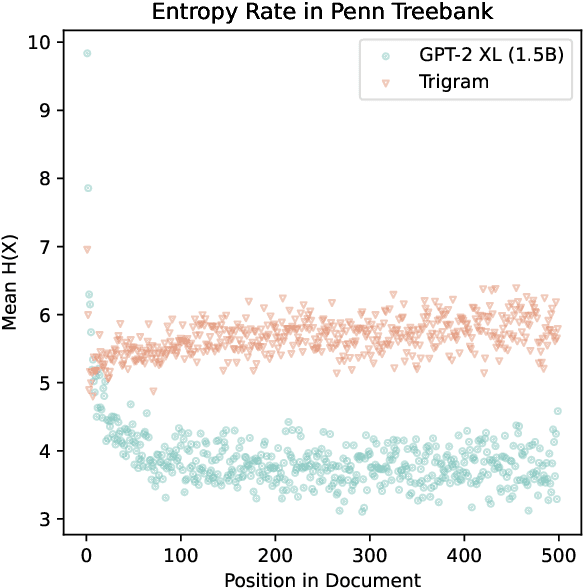Revisiting Entropy Rate Constancy in Text
Paper and Code
May 20, 2023



The uniform information density (UID) hypothesis states that humans tend to distribute information roughly evenly across an utterance or discourse. Early evidence in support of the UID hypothesis came from Genzel & Charniak (2002), which proposed an entropy rate constancy principle based on the probability of English text under n-gram language models. We re-evaluate the claims of Genzel & Charniak (2002) with neural language models, failing to find clear evidence in support of entropy rate constancy. We conduct a range of experiments across datasets, model sizes, and languages and discuss implications for the uniform information density hypothesis and linguistic theories of efficient communication more broadly.
 Add to Chrome
Add to Chrome Add to Firefox
Add to Firefox Add to Edge
Add to Edge